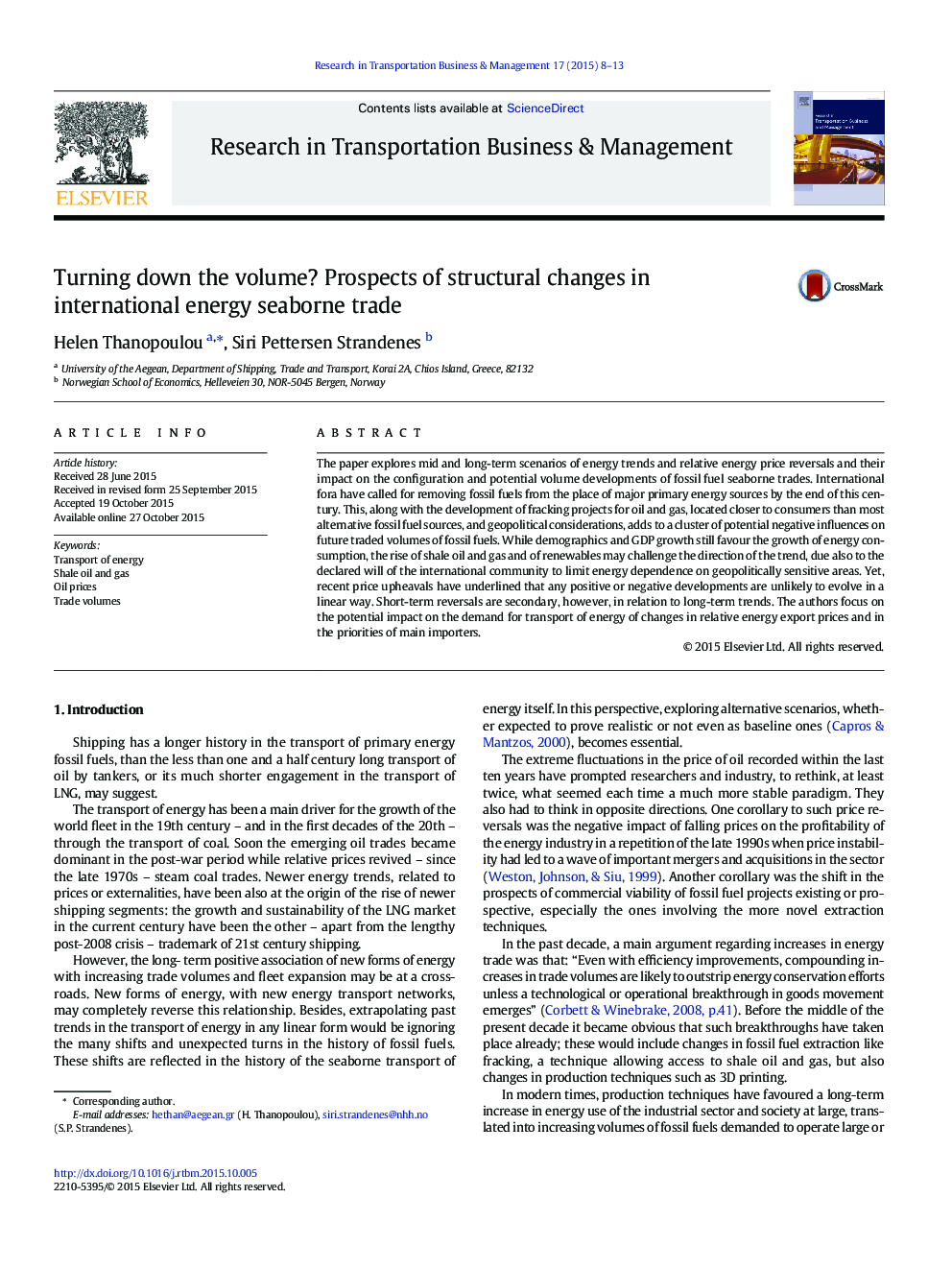| Article ID | Journal | Published Year | Pages | File Type |
|---|---|---|---|---|
| 7410304 | Research in Transportation Business & Management | 2015 | 6 Pages |
Abstract
The paper explores mid and long-term scenarios of energy trends and relative energy price reversals and their impact on the configuration and potential volume developments of fossil fuel seaborne trades. International fora have called for removing fossil fuels from the place of major primary energy sources by the end of this century. This, along with the development of fracking projects for oil and gas, located closer to consumers than most alternative fossil fuel sources, and geopolitical considerations, adds to a cluster of potential negative influences on future traded volumes of fossil fuels. While demographics and GDP growth still favour the growth of energy consumption, the rise of shale oil and gas and of renewables may challenge the direction of the trend, due also to the declared will of the international community to limit energy dependence on geopolitically sensitive areas. Yet, recent price upheavals have underlined that any positive or negative developments are unlikely to evolve in a linear way. Short-term reversals are secondary, however, in relation to long-term trends. The authors focus on the potential impact on the demand for transport of energy of changes in relative energy export prices and in the priorities of main importers.
Related Topics
Social Sciences and Humanities
Business, Management and Accounting
Business and International Management
Authors
Helen Thanopoulou, Siri Pettersen Strandenes,
